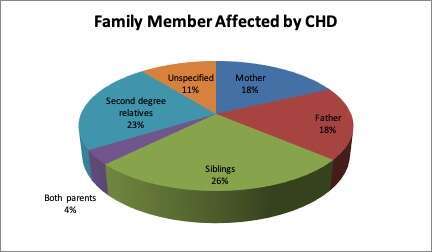
Postnatal Echocardiographic Screening of Babies with Positive Family History of Congenital Heart Disease. A Two-Year Retrospective Study
Background: Congenital heart disease (CHD) is the most common congenital disorder in newborn. The incidence is 1%. There is good evidence that left ventricular outflow tract obstructions have ‘high heritability’, however there is no consensus guidelines on screening babies with positive family history. Often the family history is vague and unclear.
Aim: To review the family history, and detection rate of CHD, for the babies with family history of CHD.
Method: Retrospective review of two-year data on all babies who were referred to clinic with family history of CHD. The data collected include: gender, pre- and post-ductal saturations, the types of family history, family affected by CHD, investigations performed and the findings on referred babies.
Results: Out of 665 of new patients seen in cardiac clinic between January 2017 to December 2018, 75 (11%) babies were referred for family history of CHD. Only 69% of these babies have pre- and post-ductal saturations done, and all of them were normal. Heart murmur presented in 20 babies (27%).
The most common family history is ‘hole in the heart’, and unspecified CHD. And eight families only declared history of heart murmur. The CHD was most commonly presented in siblings (29%), followed by mother (20%) and father (20%).
9 out of 75 (12%) of these babies were found to have abnormal findings on echocardiogram. This is a 10-fold increased in risk if compared to general population. Most common CHD detected is ASD. Out of them, two babies (22%) have heart murmur on clinical examination.
Conclusion: Obtaining accurate cardiac family history during newborn check can be challenging and baby who has CHD is often asymptomatic. Screening of babies with family history of CHD is justified, but may need to be more targeted, in light of new studies on inheritability of CHD.

Powered by Eventact EMS